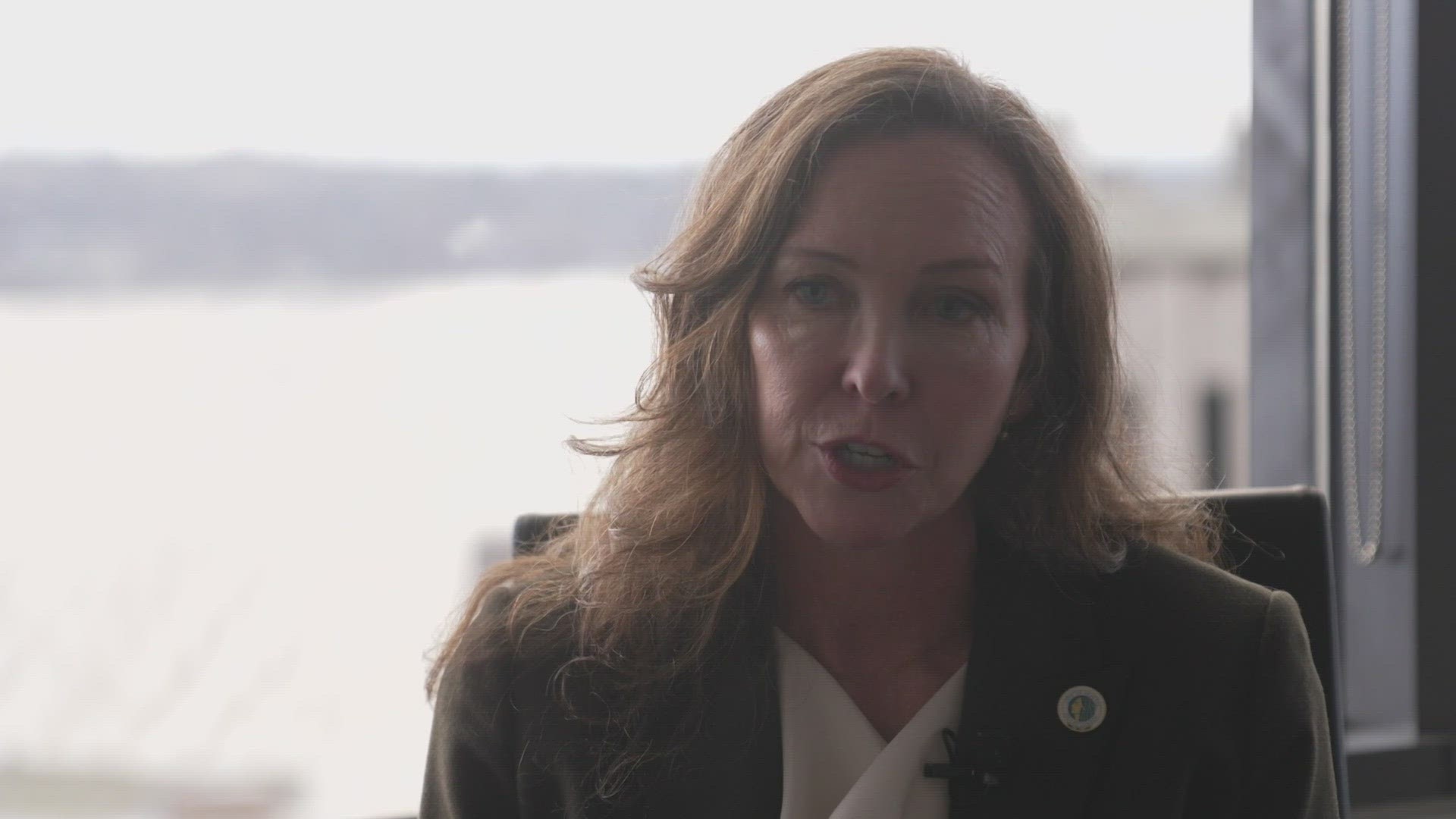SEATTLE — Seattle City Attorney Ann Davison wrote a letter to the state House of Representatives opposing a bill that would allow misdemeanors to be dismissed.
House Bill 1994 would allow defendants in misdemeanor or gross misdemeanor cases to request a dismissal if they complete court-ordered conditions that vary by case.
The list of misdemeanors that fall under the bill includes assault, stalking, assault with sexual motivation, firearms offenses and more.
In an interview with KING 5, Davison said the bill will "undermine the criminal justice system and our accountability we are trying to build within it."
Davison said there are currently efforts in place to seek alternatives to prosecution, but it is more efficient to leave that discretion to the prosecutor.
"When we have repeat offenders, this is where we need to proceed with prosecution, and this bill, House Bill 1994, will undercut that," Davison said.
In the letter to the Washington State House of Representatives, Davison said another concern is the bill does not define what the court-ordered conditions would be for each offense.
"For example, there is nothing that would stop a court from allowing a serious assault case to be dismissed after the defendant performed a paltry 10 hours of community service," Davison wrote in the letter.
Davison told KING 5 that the executive director of the Washington Prosecuting Attorney's Office and members of the Washington Association of Sheriffs and Police Chiefs also oppose the bill.
The bill's sponsors are Darya Farivar, Roger Goodman, Julia Reed, Emily Alvarado, Bill Ramos, Julio Cortes, Melanie Morgan, Kristine Reeves, Tarra Simmons, Timm Ormsby, Nicole Macri, Chipalo Street, Mary Fosse and Gerry Pollet.
In a Jan. 9 public hearing, the bill's prime sponsor, Darya Farivar (D) 46th District, said that most people who enter the criminal justice system do so because of their disabilities, and this bill will reduce an overwhelmed prison system and reduce the rate of recidivism.
“What this bill does is it allows our only neutral party in the courtroom to make a decision that could lead to increased success in a more meaningful way than incarceration has been proven to do in the past,” said Farivar. “This is not a blank check to anyone. This is an opportunity to be creative and to meet people where they're at, which I think is really missing in our criminal legal systems."
However, Davison believes options for diversion are already in place.
"This will leave out prosecutors from the conversation and defense can move for this or the court can move for this and prosecutors can not say, 'No, we don't agree,'" Davison told KING 5. "We just don't get to have any part of that conversation and we can't stop it. So this would proceed without us. We represent the community as a whole and that individual victim because that's why we brought charges, we believe someone should be held accountable for those criminal acts."
The legislation applies to almost all misdemeanors with some exceptions, including DUIs after the first offense and domestic violence.
Rep Farivar said cases pled down from a felony to a misdemeanor would not apply to this legislation.
The King County Sexual Assault Resource Center's director of advocacy services testified on the legislation during the Tuesday committee hearing.
During testimony, director Megan Allen said, “For survivors who seek help, it is imperative that the system responds in a way that acknowledges harm and trauma and ensures their experience is not minimized.”
According to analysis done by the organization involving 408 victims that it began tracking in 2021, 2/3 of the cases were resolved involving those clients resulted in pleas to lesser charges and of those resolving in lesser charges, 1/3 were misdemeanors.
The King County Sexual Assault Resource Center would like the bill to include sexual assault crimes as an exemption.
Representative Farivar said she is working with the group to make amendments.

